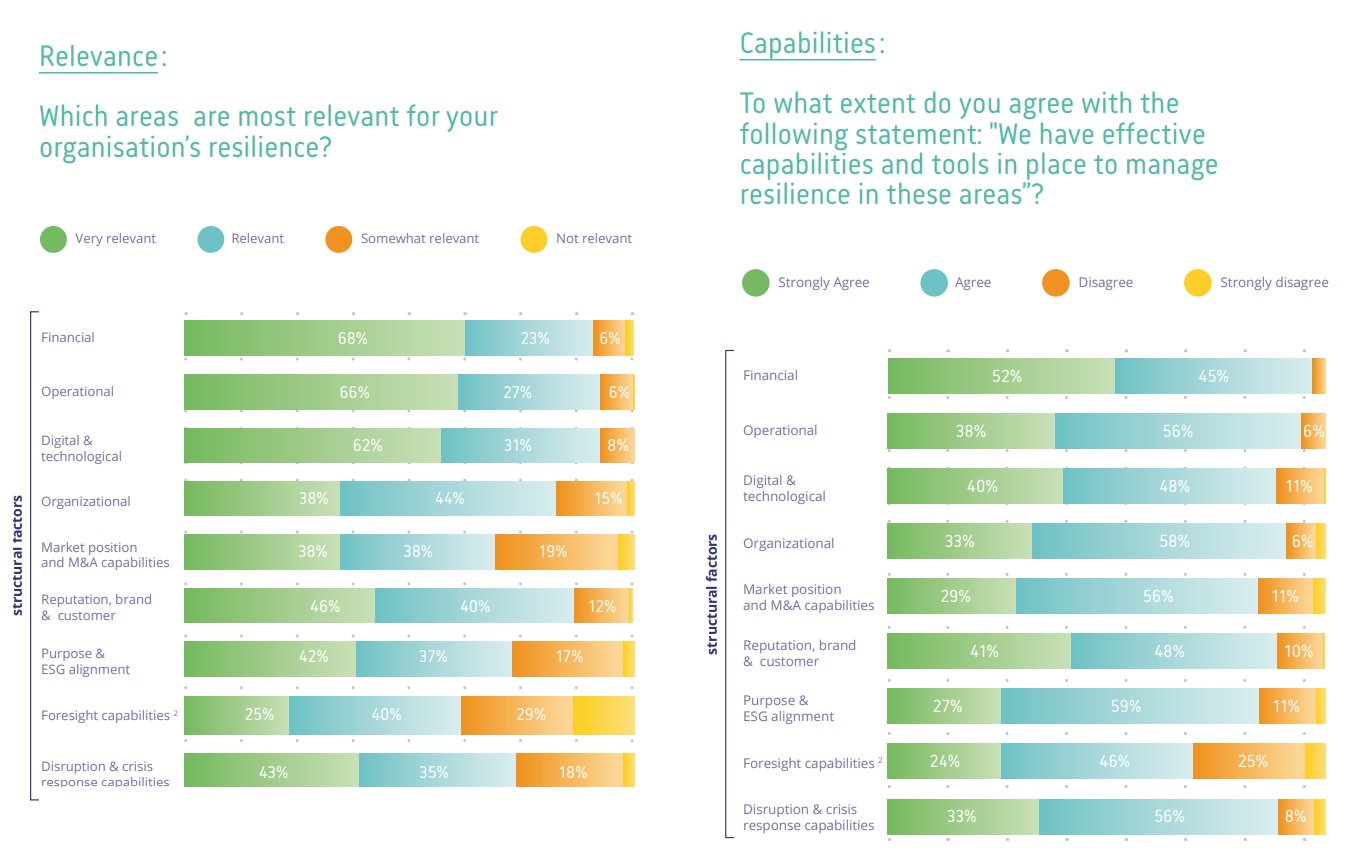
The “resilience” concept, often discussed and reflected on in recent years, has recently been placed under the spotlights of the pandemic emergency. As catastrophic events become more frequent, the interconnectedness between systems becomes stronger, risks become more complex and the necessity of knowing how to promptly react and adapt to changes becomes bigger.
FERMA (Federation of European Risk Management Associations) and the consulting company McKinsey have recently presented the report “Role of Risk Management in Corporate Resilience”, which presents the opinions of Risk/Insurance Managers at C level on management of company resilience after the pandemics.
“We already knew before that Risk Management plays a central role in building the resilience of a company and in preventing shocks destabilizing it – commented the President of FERMA, Dirk Wegener – The pandemic has demonstrated this, and provided us with data to reflect on”.
More than 90% of the interviewed have affirmed that the global pandemic has made risk management and resilience themes more important for their organizations. The areas which have seen major interventions in the last year are, unsurprisingly, those regarding work place safety and remote working, in which more than three quarters of the companies have seen substantial modifications. Only 26% of organizations have finalized a reconstruction of the supply chain, while 42% have started the process. One in three companies has changed its insurance strategy and 35% of them has planned to do so. It is an enforced decision caused by the hardening of the insurance market already in motion before the beginning of the pandemic, and further worsened because of it.
Major part of the interviewed state that their companies are completely resilient, also because the strategies regarding this theme has increased. Only 13% of Risk Managers are not involved in the current discussion. There is still work to be done on the methods: more than half (53%) of the companies do not use stress tests scenarios in the strategic decision making process.
The survey used three dimensions in measuring the organization resilience level: the strategic importance of the resilience for the organization, the capacity to manage it and the degree of consideration of the risk functions. The companies state that it is fundamental to develop resilience most of all in the financial, operative and digital/technological environment, less in the organizational area. Furthermore, the capacity to respond to the crisis and the eventual disruptive events is considered as more important in respect with the prognosis capacity.
Looking at the future, almost three quarters of the interviewed state that it will be necessary to work on developing a better risk culture and on integrating resilience in the strategies of the companies. With less priority, but always fundamental, for 49% and 39% of Risk Managers respectively, a priority will be to improve their interaction with the company board and with regulators and stakeholders.
